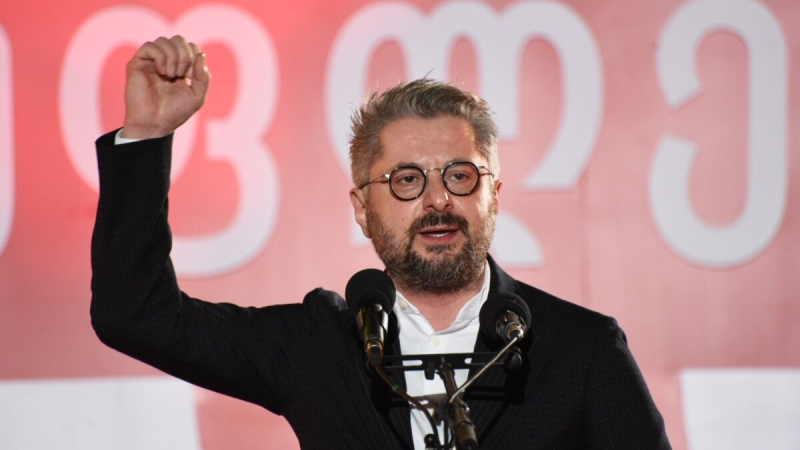
Nika Gvaramia on Countering Russian Disinformation in Georgia
By Natasha Wood, MALD Candidate 2024, The Fletcher School
Georgian opposition journalist Nika Gvaramia sat down for an interview with the Fletcher Russia and Eurasia Program. Gvaramia is a former Georgian Minister of Justice and a former member of the Georgian Parliament. He is originally from Abkhazia, a breakaway region of Georgia that has been occupied by Russia since 2008.
In 2019, he founded Mtavari Arkhi, a pro-opposition broadcasting company in Georgia. In May 2022, Gvaramia was convicted of abuse of office charges and jailed for 13 months. The case was widely criticized as politically motivated, including by the U.S. Department of State, the European Parliament, and Amnesty International. In response to public pressure, Georgian President Salome Zurabishvili pardoned him in June 2023.
Gvaramia gave a luncheon lecture with the International Security Studies Program at Fletcher on November 20, 2023. In a follow-up conversation, he focused on how Russian disinformation operates in Georgia. What lessons can the United States draw from Georgia’s experience combatting Russian disinformation over many years?
Gvaramia reiterated that reaching people on social media channels is a cornerstone of Russian information campaigns. Speaking about the influence operations in Georgia, Gvaramia said that “the U.S., at the end of the day, should accept that Russia is pretty much ahead of them in the information war.” Gvaramia suggested that while X (formerly Twitter) has been for a long time a significant social media outlet in the United States, Facebook remains by far the most popular platform in Georgia. Russia’s use of Facebook and Telegram in Georgia has been an instrumental tool of influence, he said.
The most effective way to counter Russian disinformation campaigns, Gvaramia suggested, is to beat them at their own game. In propaganda, Gvaramia said, the most important determinant of success is whether or not it is interesting. After that, “it could be moral, or ethical, or balanced, or accurate, but first of all [it is] interesting.”
Gvaramia asserted that, in the Georgian context, efforts to counter Russian propaganda by presenting neutral information without an angle will fail. “If you are fighting propaganda with [less] interesting countermeasures such as lectures, brochures, or books about media literacy, it’s not working.”
Instead, Gvaramia suggested, that what is effective is news that is not only real and informative but also tells a story. “The substance should be not propaganda, not lies, but real things. But the framework should be the same.”
On March 11, 2024, Gvaramia and Nika Melia, former chair of Georgia’s opposition party United National Movement, announced the formation of the political alliance “Ahali.” This alliance, set to contest Georgia’s parliamentary elections in October 2024, represents a significant development in the country’s political landscape. In their announcement, Melia expressed their focus on future achievements, indicating a forward-looking approach.
